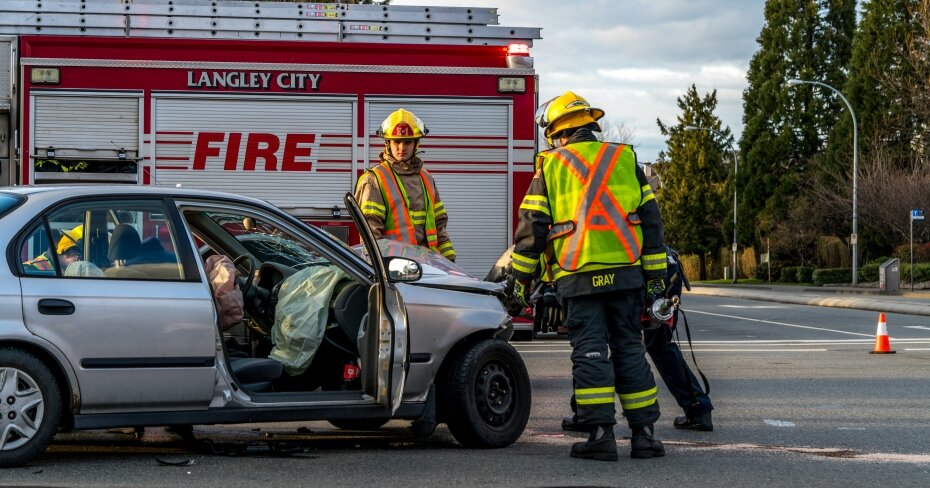What happens if you get into an accident outside your province?
By: Jessica Mach on July 16, 2025
This article has been updated from a previous version.
If you get into an accident outside your province, your Canadian auto insurance policy will generally provide coverage, but the specifics depend on your policy and the location of the accident.
Car accidents are an unfortunate reality on Canadian roads, with over 1,900 fatalities and nearly 120,000 injuries reported in 2023. While most accidents occur close to home, many Canadians find themselves in unfamiliar territory when traveling out of province or abroad.
For instance, did you know that Ontario consistently records some of the highest accident rates in Canada, and urban centers like Ottawa see spikes in collisions during winter months? These statistics highlight the importance of being prepared for the unexpected, especially when driving outside your home province.
Let’s break down what your auto insurance policy will and won’t cover in these situations.
Read more: Taking a trip to another province? You might want to get travel insurance
Can you file a claim for an out-of-province accident?
You can file a car insurance claim for an out-of-province accident, but the process and coverage details depend on the province where your policy is issued and the jurisdiction where the accident occurs.
Auto insurance is provincially regulated, which means that the rules regarding out-of-province claims will vary from province to province. Before heading out on a road trip, you should always check with your insurance provider exactly what, and how much you’re covered for and whether you’ll need to buy extra coverage.
Ontario drivers
For Ontario residents, there’s some good news: even though the province has a private insurance market, the provincial government has minimum coverage requirements that all drivers are required to have.
The Ontario Automobile Owner’s Policy, which most Ontario drivers have, provides coverage for “incidents occurring in Canada [and] the United States of America.”
Under Ontario law, all auto insurance policies must provide:
- Liability coverage.
This covers the cost of settling a legal claim if someone else is injured or killed, or if their property is damaged). - Accident benefits.
This provides benefits if you are injured in an accident, regardless of who’s at fault. These benefits include supplementary medical care, a tax-free income benefit, an allowance if you can’t work, an allowance if a caregiver is injured, and funeral expenses. - Uninsured automobile coverage.
This covers damage to your car if you’re hit by an uninsured driver; it also provides coverage if you’re a victim of a hit-and-run scenario. - Direct Compensation - Property Damage (DC-PD).
Covers damage to your vehicle and its contents if another driver is at fault, provided the accident occurs in Ontario and involves a vehicle insured by a licensed Ontario insurer.
As of January 2024, Ontario drivers can opt out of DCPD coverage. However, this decision only affects accidents within Ontario and does not impact out-of-province claims.
British Columbia drivers
B.C. drivers are also well-covered when road-tripping out-of- province. The Insurance Corporation of British Columbia (ICBC)’s Autoplan, which is the minimum mandatory auto insurance plan that is required of all B.C. drivers, provides coverage everywhere in Canada and the U.S., including Hawaii and Alaska.
Jurisdiction considerations: In most cases, your insurance claim will be governed by the laws of the jurisdiction where your accident happened. This means that if your accident takes place in Vermont, any court proceedings would also have to happen in-state.
Related: Roadside assistance in Canada: Costs, coverage, and benefits explained
Do you need to buy additional coverage?
This depends on the circumstances of your trip.
If you’re driving in the U.S., it’s important to note that many states have lower minimum coverage thresholds than you’ll see in Canada. This means that if you get into an accident with an American driver, they may not have enough insurance coverage to pay you for damages.
This is where extra coverage will come in handy. To avoid unexpected expenses, talk to your broker or insurance provider about short-term, add-on options before you leave for your trip.
Read next: How much auto insurance do you need in Canada?
Save 23% on average on car insurance
Compare 50+ quotes from Canadian providers in 3 minutes.


